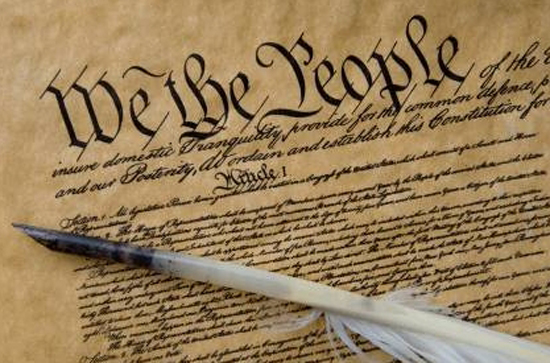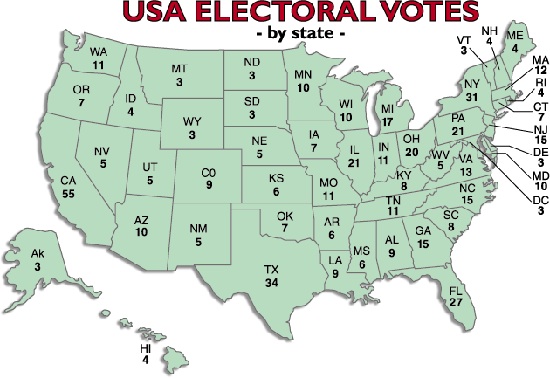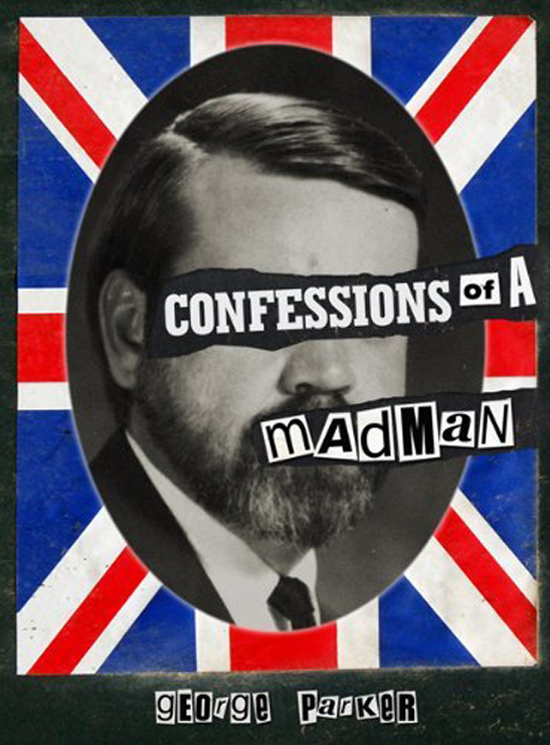
[Last week, the “Fighting Back” series began with a simple question: given their minority status for most of the last 80 years, why is the GOP not only still viable but so successful at winning elections? Over the next several weeks, we’ll examine answers in a myriad fields, some obvious and others more subtle, and then offer solutions aimed at turning the tables on the party that favors corporations and the 1% over the vast majority of Americans. The series is intended to be a discussion, not a monologue – so in the spirit of participatory democracy, feel free to share your ideas in the comments section as we move from topic to topic.]
With the death of the Lee Atwater in 1991, the GOP lost their most effective election strategist in decades – the “bad cop” who miraculously overcame a mid-summer 41% polling deficit and, many observers believe, single-handedly pushed “good cop” George H.W. Bush (President #41) into the White House via a mixture of mendacious tactics and Machiavellian strategies. Without Atwater, Bush lost badly (370-168 electoral votes) to Bill Clinton in his 1992 re-election bid – even as Republicans gained seats in the Democratically controlled House and Senate.
Spotting opportunity, Karl Rove – a crafty political “advisor” who had been biding his time, waiting in the wings for more than a decade after his involvement with the Watergate scandal – made his move. Although little known outside of Texas, he had already cultivated a nationwide network of GOP operatives and, more importantly, had long ties to the Bush family. Amping up Atwater’s dirty tricks, “take-no-prisoners,” and “divide and conquer” playbook, Rove ran the dirtiest, most negative, and most successful campaigns in anyone’s memory, electing hardline right-wingers Senator Phil Gramm, Senator John Ashcroft, Agricultural Commissioner Rick Perry, Senator Kay Bailey Hutchinson and, of course, Governor George W. Bush, the incurious son of the former President. (Anyone still not aware of the many sins of Karl Rove – too numerous to list in this or any other post – should read selected posts of the late Molly Ivins here and here, and/or watch the fine documentary Bush’s Brain).
During this string of unprecedented wins, Rove slowly gained invisible control of the Republican National Committee and successfully courted Fox News, Fortune 500 corporations, and individuals like the Koch brothers, bringing them into the Big Money Tent of the GOP. So when it came time for the puppet-master to run “W” for President, he had all the tools – lies, smears, dirty tricks, misdirection, and the money to implement them – and resources needed to run an Atwater Times Ten campaign, including the advocacy of James Baker (who later admitted to fixing the election), the Supreme Court, Florida Governor Jeb Bush (W’s brother) and his cohort Kathryn Harris, who carried out voter suppression while introducing the now infamous butterfly ballots to the Sunshine State. The election was literally stolen from Al Gore, marking the first time in a hundred years that a President was elected without winning the popular vote.
But it was during his years as Senior Advisor and then as Deputy Chief of Staff to President Bush (#43), that Rove actually reconfigured the GOP, transforming it from a conservative bloc that generally venerated the values that fuel democratic politics – pragmatism, bipartisanship, mutual respect, the twin arts of negotiation and compromise, and at least a semblance of civility – to a hard line, far-right party intolerant of and punitive to even the smallest form of dissent or rank breaking.
Once in the White House and in possession of real power, Rove continually mimicked and reinforced a career trajectory not dissimilar to that of Joseph Goebbels, the Minister of Public Enlightenment and Propaganda of Germany’s Third Reich from 1933 to 1945 and almost universally considered the “father of modern political propaganda.”
After living through World War II and witnessing first-hand the disastrous effects of Goebbels’ stunning misuse of language for political ends, George Orwell wrote the 1946 essay “Politics and the English Language,” in which he newly defined the agitprop of Goebbels’ Ministry: “Much political language – by means of circumlocution, euphemism and other doctorings, was designed to make lies sound truthful.”
That sentence became the basis of Newspeak – a language Orwell created to illustrate the power of words and phrases to control the thoughts and actions of the people – in his classic novel, 1984, published in 1948. And Newspeak – the seductively reassuring “branding” of party policy combined with the outrageously false and incendiary defining of any alternative views – was and is a central foundation for both Goebbels and Rove.
Let’s be clear – I am not calling Rove a Nazi – excrementous, yes; a Nazi, no. I am merely pointing out that Rove has employed almost exactly the same tactics – updated for the electronic age and streamlined for contemporary American culture – as did Goebbels.
Curiously, there are a few personal similarities between them as well. Both men first ascended to power as acolytes in the service of, and instrumental to, their masters’ political success. Both chose to travel the lowest campaign roads imaginable and, perhaps because of that, both men were – despite their obvious intelligence, skills, and success – vehemently disliked by almost everyone with whom they came into contact. George W. Bush, the greatest beneficiary of Rove’s political acumen, even nicknamed him “turd blossom” (it is lost to history if Hitler ever called Goebbels scheisskopf).
In politics especially, every single study of voting habits shows that emotion trumps reason in almost every election. For that reason, almost all propaganda targets emotion rather than intellect. So, like Goebbels, the focus for Rove is on often imaginary or contrived wedge issues (fear, xenophobia, homophobia, misogyny, racism, and false patriotism) that negatively arouse strong and even hysterical emotions rather than on real political concerns that require positively-charged and reasoned responses.
Using emotions like fear as their cornerstones, both Goebbels and Rove created horrendously effective propaganda factories built on the dogma of Indoctrination, Intimidation and Revenge, and Distraction and Disinformation, coupled with Divide and Conquer strategies.
By institutionalizing these immoral agendas, both men created the most divisive and destructive societies in their nations’ histories – and drove a great percentage of their fellow citizens absolutely batshit crazy.
In 1945, with Soviet troops advancing on Berlin, Joseph Goebbels had the very good sense to kill himself. Since Karl Rove will probably not grace us with such a similarly joyful outcome, it’s mandatory to deconstruct his schemes so we can figure out how to successfully overcome his shameless but effective brand of politics without ourselves becoming indecent.
This, I’ll tackle in my next column, Fighting Fire With Fire.
Related Posts:
Fighting Back
The Electoral Scam
Being Fair
Occupy Reality
Giving. . . And Taking Back
A Tale Of Two Grovers
A Last Pitch For Truth
America: Forget it, Jake. It’s Chinatown.
Gotcha!












